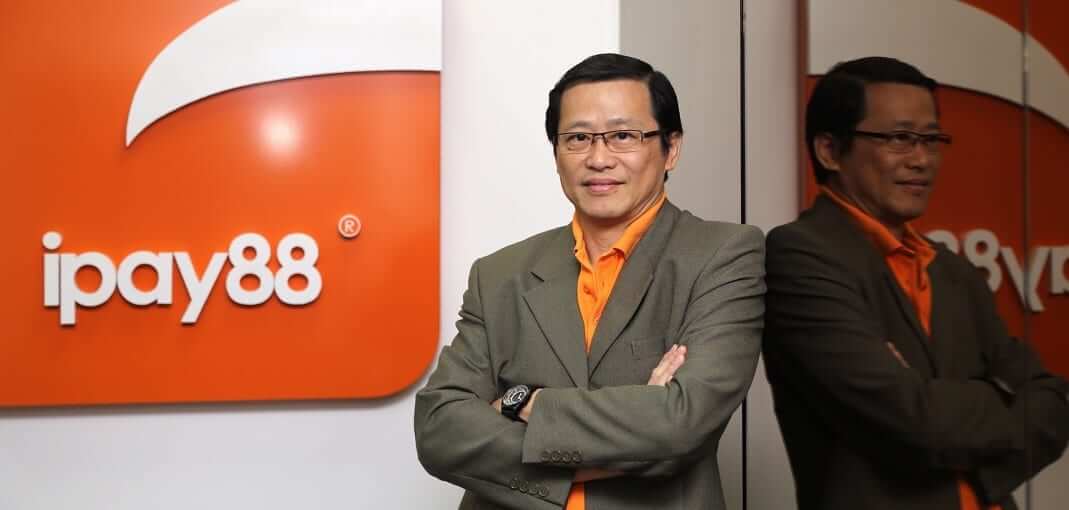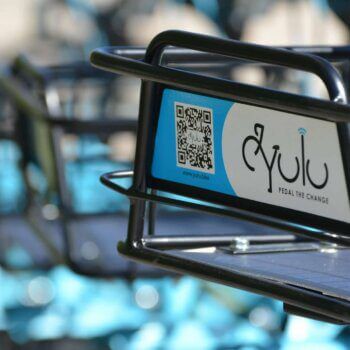iPay88 is a renowned online payment gateway which was co-founded by notable entrepreneur, Mr. Lim Kok Hing. iPay88 which helps e-commerce businesses to collect payment via various payment options such as credit cards, online banking, digital wallets, bank transfer etc. It currently helps the e-commerce companies to collect payment online. To date, it is serving close to 10,000 ecommerce merchants on an active basis. Mr. Lim shares his story and some insights for entrepreneurs out there with The Asian Entrepreneur Magazine.
How did you come out with the idea of iPay88
We were an e-commerce company ourselves in the year 2000, selling mobile prepaid top up and mobile phones via mobile88.com. We noticed back then that the online payment service was much sought after by many e-commerce start-ups. However, in view of the complex process of getting aid from the bank, we came out with the idea of providing a payment engine to help these merchants collect payment online. In the year 2006, we officially market by the name of iPay88.
Walk though the process of setting up iPay88.
When we extended this service to more and more e-commerce companies, we decided to separate our e-commerce business, and form a new company iPay88 to reflect the nature of business ie Online payment gateway.
We obtained the relevant certification as well as the approval from the banks and the regulators which governs the setting up of ipay88.
Did you encounter any particular difficulties during start-up?
During the infancy stages of iPay88, there was a low adoption rate for e-commerce back in the early days around in 2006 to 2010.
The challenge was the low adoption of businesses, whereby there weren’t many companies in this region who thought that there was a need to sell online.
In addition, consumer confidence was low back then as they were hesitant in keying in credit card details over the internet.
Access to the internet was relatively less due to the slow speed and high cost in which broadband was only introduced in the year 2010. The speed of the Internet to a certain someone’s home before 2010 was merely 64 kbps. The users’ access to the internet was very much limited to office and home use. Smart phone was rarely available, and mobile Internet was at the 2G technology level. Sufficient increase in availability of broadband was an important growth for e-commerce.
We managed to overcome these setbacks by holding on to the belief that time will come for iPay88 business to potentially excel, even though we were incurring losses for close up to 6 years.
We never gave up!
What are some current developments for the iPay88?
The market expansion plan in ASEAN region is being carried out, and will be announced in due course within this year.
Regarding product development, we have recently launched a service whereby you can accept payment using a mobile POS reader (mPOS) which uses the smartphone to collect payment. This will enable iPay88 to expand the scope of payment beyond being an online payment gateway only. It will provide substantial growth potential to the company as well as provide more convenience to both merchants and customers to transact over ipay88.
In August 2015, we successful drew in an investment from NTT Data, a Forbes company with more than 80,000 employees in 40 countries. It is an endorsement of ipay88’s ability and strength in the payment space. More business synergies will then be achieved by ipay88 by tapping into the global presence of NTT Data.
What kind of feedback you get for iPay88 so far?
The feedback has been relatively good so far. Our product fits well with the market needs. We have received very good feedback from the e-commerce merchants and we formed partnerships with banks and resellers to aid each other in selling the products. We had good support from MDec (Malaysia Digital Economy Corporation) to expand the business as well as receive some funding a few years ago from Cradle Fund to develop the market. With trust and help from them, our business has been growing rapidly since inception. We would like to thank MDec, Cradle Fund and all business partners for making iPay88 successful.
Do you face competition in this industry?
As in any business, there are competitions. However, we view competition favourably, and work hard to grow our business despite that.
Our strategy is to introduce new products into the market fast, and to reach out to new market segments, as well as expanding the service to more countries. Expanding our business into non mPOS is an example on how we expand our normal market.
What can you tell us about your industry?
Payment is the essential part of commerce, since ancient times. During those times, people pay with sea shells to gold or silver coins to now paper notes progressively in time. Fast forwarding to the future, money will most likely be in electronic form either being a digital number of your bank account or a digital wallet. You will not hold cash. You will pay with a card, either credit or debit card or by taping your phone or watch at any retail counter to complete a purchase. No more hard cash or coins in your wallet. That is the future opportunity that iPay88 is heading for.
What is the future of the industry?
The future is bright, more and more businesses recognise the importance of selling online now.
The Government is pushing for cashless transaction to promote more efficiency in the economy. Cash handling is costly from the ATM at banks, and cashiers at the retail counters can attract robbery attempts. In addition, cash collections that transports from one place to another require guarded services, and in many instances, it may lead to life threatening situations. As society grows more advanced, more online payment services is needed.
To stay relevant, we need to develop products that meet the markets needs.
Not to forget the rising smart phone penetration in the market has played a very important part in payment now. By working around mobile technology, fulfilling customer needs with suitable products will help iPay88 to stay relevant.
Were there anything that disappointed you initially?
Payment industry is highly regulated. Many services require approvals within certain rules and regulations before being launched which is frustrating at times.
Is it hard to be a successful entrepreneur in Asia?
It is never easy to be entrepreneur, be it in Asia or not. An entrepreneur just has to overcome any problems that occur in their life.
What is your opinion of Asia Entrepreneurship vs Western Entrepreneurship?
Failures are viewed more acceptable in the west than in Asian societies in general, therefore, the western entrepreneurs are willing to take higher risk compared to Asian counterparts in general. In Asia, failures in start-ups are being viewed as a personal failure by the community, so it can be very discouraging to the would-be entrepreneurs. The families of Asian entrepreneurs would be more worried of the consequence of the business failure rather than being successful.
What is your definition of success?
The most common measurement of success is by the entrepreneur’s wealth, or how big the market shares his company manage to command.
As of for me, success is measured beyond the above. An entrepreneur is successful only if that success of the company can continue for a long time.
In order to achieve that, the entrepreneur must have built his company with a strong team to manage it in the absence of the entrepreneur. This includes good policies, self-governance and a good succession plan to ensure the continuity of the success of the organisation.
That is the true success of entrepreneurs!
Why did you decide to become an entrepreneur?
I was always being fascinated by the success stories of entrepreneurs during my university time in the 1980s. I admired how entrepreneurs worked their ways to grab opportunities, grew businesses and created great companies along their way.
It was my dream to become like them one day.
Being an entrepreneur, I have the benefits of enjoying the fruit of risk taking. I learned from both success and failure, and failure is where I learn the most from. I may not have the chance to experience success if I had not taken this path. It has proven to be very fulfilling for my personal development.
What are the keys to entrepreneur’s success?
Be passionate about being what you are engaging in. Passion helps to engage your energy to overcome any obstacles in front of you.
Build a team fast. Entrepreneurs cannot succeed being an island. You need a team of people to help implement your ideas and to modify along if the circumstance requires a change of implementation. The team should exhibit basic functions of marketing, finance, product development and operation management. At the beginning, an individual may play more than one role, but ultimately these are to be separated when the business grows.
Accepting failure is part of the journey to success. No journey is smooth sailing. NEVER GIVE UP!
Also to mention, cash flow is the business lifeline. Ensure that it does not stop. Manage cash flow well, with a view that even if the business situation turned against you, your business will still withstand. If there was a moment when it was crucial to stay alive in your business, only then you will take on new opportunities which may be just around the next corner.
Any Parting words of wisdom for entrepreneurs out there from your personal experience?
Integrity of an entrepreneur is most important in running a company. That is probably the most valuable asset of any entrepreneur in my opinion. Any business partner and potential investors will cross check your reputation via channels that you may not even be aware. They will avoid you if there are bad remarks over your reputation. With integrity, an entrepreneur’s success is sustainable because more business partners are willing to trust and to help you grow your business through the challenging market conditions.





























